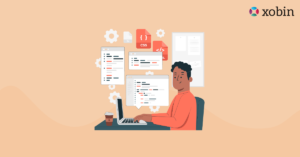In a competitive landscape where skill gaps can stall growth, smart leaders turn to the Training Needs Assessment to stay ahead. By leveraging data-driven insights and skill-based testing, executives can pinpoint performance gaps, align training with business goals, and future-proof their workforce. In this blog, we’ll explore how a strategic Training Needs Assessment can elevate your talent strategy, optimize L&D investments, and empower teams with the capabilities that drive results.
Table of Contents
What is a Training Needs Assessment (TNA)?
A Training Needs Assessment (TNA) identifies the skills, knowledge, and abilities employees need to do their jobs well. It helps organizations find gaps where employees need more training. As a result, businesses can align employee development with both personal goals and company objectives.
Conducting a Training Needs Assessment involves understanding the current performance levels, determining the required skills for optimal performance, and identifying the gap between the two. The assessment helps you develop targeted training programs that focus on the areas that will bring the most value to your team.
TNA is generally carried out in three phases:
- Organizational Analysis: Understanding the overall needs of the organization.
- Task Analysis: Identifying specific tasks where training is required.
- Individual Analysis: Assessing the skills of individual employees and identifying gaps.
Why is a Training Needs Assessment Important?
A well-executed Training Needs Assessment provides numerous benefits to organizations:
Improved Workforce Performance
By addressing skill issues, employees can perform their tasks more efficiently, leading to better overall performance.
Increased Employee Satisfaction
Employees who feel supported with training opportunities are more likely to feel valued, improving job satisfaction and retention.
Cost-Effective Training
A Training Needs Assessment helps organizations save money by focusing training efforts on the specific needs of employees, avoiding unnecessary or redundant training sessions.
Alignment with Organizational Goals
TNA ensures that training initiatives are aligned with the business’s broader goals, contributing to long-term growth and success.
Methods of Training Needs Assessment
Choosing the right method for conducting a Training Needs Assessment is essential for gaining accurate insights into your workforce’s capabilities. Various methods can be used depending on the size of the organization, the roles being analyzed, and the resources available. Let’s explore the most effective methods of Training Needs Assessment.
Surveys and Questionnaires
This is one of the most commonly used methods due to its simplicity and scalability. By distributing structured surveys to employees, managers can gather valuable data on skill levels, training preferences, and perceived gaps. When crafted well, surveys provide a broad overview of organizational training needs.
Interviews
One-on-one or group interviews allow for more in-depth discussions. These can be conducted with employees, team leads, or department heads to identify knowledge deficiencies or performance concerns. Interviews uncover insights that may not surface in standard surveys.
Performance Appraisals
Reviewing past performance evaluations can highlight recurring issues, underperformance trends, or strengths that need further development. This method helps correlate skill gaps with actual job performance, making it a reliable foundation for training plans.
Observations
Directly observing employees on the job provides real-time insights into how tasks are being performed. This method helps identify workflow inefficiencies, outdated practices, or training gaps that may be impacting productivity. It’s especially useful in technical or process-heavy roles.
Skill-Based Testing
Skills assessment tests provide a data-driven method to evaluate competencies across various job roles. These tests measure specific abilities, compare them against benchmarks, and highlight exact areas for improvement. As a result, organizations can prioritize training based on real performance data.
Focus Groups
Organizing small focus groups with employees across departments can offer collective insights into training needs. This collaborative method often surfaces shared challenges, training interests, and innovative ideas to improve learning and development efforts.
Job Task Analysis
This involves breaking down each job role into individual tasks and identifying the skills needed to perform them effectively. Comparing those requirements to current employee capabilities helps define targeted training interventions.
Steps to Conduct a Training Needs Assessment
Conducting a Training Needs Assessment can be broken down into a few simple, actionable steps. Let’s walk through each of these steps to help you understand the process in detail.
Step 1: Define the Organizational Goals
Before diving into the details of your Training Needs Assessment, it’s essential to define your organizational goals. Why do you need to upskill your workforce? What strategic objectives does your company aim to achieve in the coming months or years?
Aligning training needs with these broader organizational goals ensures that the skills acquired by employees directly contribute to business success. By focusing on areas that align with your company’s future direction, you can maximize the return on investment in training.
Step 2: Identify Job Roles and Skills Requirements
Now that you have your organizational goals defined, the next step is to assess the skills required for specific job roles within your company. Understanding the competencies necessary for success in each position will help you determine where training is needed.
Here are some key questions you should ask during this phase:
- What skills are required for each role in the company?
- Are there any job descriptions that need to be updated based on changing business needs?
- Which job roles are critical to achieving business success?
This will allow you to create a comprehensive list of the necessary skills for each role and identify which areas require attention during the Training Needs Assessment process.
Step 3: Analyze Current Skills and Performance
In this phase, you evaluate the current skill levels and performance of employees. You can do this by reviewing employee performance evaluations, conducting surveys or interviews, or even through direct observation.
Here are a few techniques for gathering performance data:
- Employee Self-Assessments: Let employees rate their skills, which can offer insight into areas where they feel they need improvement.
- Managerial Assessments: Managers can provide an objective view of how employees are performing in their respective roles.
- Performance Reviews: Historical performance data can highlight trends or areas of weakness in an employee’s skill set.
By analyzing current skills, you can determine the gap between what employees can do and what they need to do to succeed.
Step 4: Identify Training Gaps
Once you’ve assessed the current skills, it’s time to identify the gaps. This is where the magic happens. You’ll compare the skills required for each role with the skills employees currently possess, pinpointing areas that need improvement.
For example:
- If a customer service team member struggles with communication skills, this would be an identified gap.
- If a sales team lacks knowledge in product specifics, that could also be an area for improvement.
By identifying these gaps, you can create targeted training programs that directly address the needs of your workforce.
Step 5: Develop a Training Plan
Now that you have a clear understanding of the skill gaps, it’s time to develop a training plan. This plan should outline the specific training programs, resources, and timeframes needed to close the skill gaps identified earlier.
A well-structured training plan typically includes:
- Specific Learning Objectives: Clearly defined goals of what the training aims to achieve.
- Training Methods: The most effective methods to deliver training (e.g., in-person, online, blended).
- Timeline: A timeline for implementing training sessions and follow-up assessments.
- Resources and Budget: What resources are required (e.g., external training providers, software, training materials), and how much of the budget is allocated?
Step 6: Implement the Training
Once the plan is set, it’s time to put it into action. Start by rolling out the training programs and make sure employees have access to the resources they need. Monitoring progress during this phase is essential. If necessary, adjust the training plan to ensure it remains effective and meets the desired outcomes.
Step 7: Evaluate the Results
Once the training has been implemented, it’s crucial to evaluate the effectiveness of the programs. Did the training meet the learning objectives? Are employees now better equipped to perform their roles?
You can evaluate the results by:
- Gathering feedback from employees about the training program.
- Observing improvements in performance after training.
- Measuring overall productivity and comparing it to pre-training levels.
The evaluation phase ensures that you’ve invested in the right training initiatives and that the results align with the desired outcomes.
Transform Your Training Needs Assessment Strategy with Xobin!
Conducting a successful Training Needs Assessment requires accurate data, streamlined processes, and the right tools. That’s where Xobin steps in. Our AI-driven skills assessment software enables recruiters and HR professionals to effortlessly evaluate current employee competencies, identify skill gaps, and design targeted training programs. With 3,400+ pre-built skills and 2,500+ job role-based customizable tests, Xobin makes it easy to gather actionable insights for smarter workforce development decisions.
Ready to transform your training strategy and build a future-ready team? Book a personalized demo today and experience the smarter way to assess, train, and grow talent.






